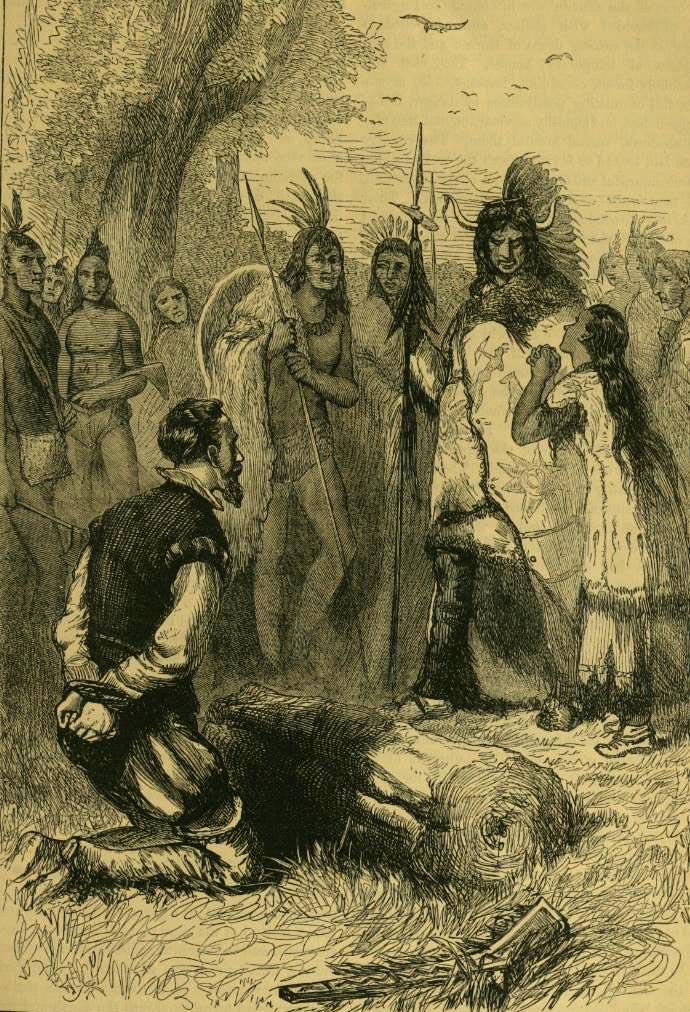Pocahontas saves Captain Smith's life
This illustration from the late nineteenth century shows Pocahontas, the young daughter of Powhatan, the chief of the Algonquian Indians of the Chesapeake, pleading for the life of John Smith, a leader of the Jamestown colony.
According to Smith, he was captured by Indian hunters and taken to a chief village of the Powhatan Empire. He was then laid across a stone and was about to be executed, when Pocahontas threw herself across his body. Smith wrote in a 1616 letter to Queen Anne that "at the minute of my execution, she hazarded the beating out of her own brains to save mine; and not only that, but so prevailed with her father, that I was safely conducted to Jamestown."
Smith's story may or may not have been true; no other account of the event exists. Pocahontas later was married to colonist John Rolfe to make an alliance between Powhatan and the Jamestown colony. She traveled to England with Rolfe, and Smith may have invented the story to gain respect for Pocahontas among the English. If it occurred, it may have been a ritual in which Smith was symbolically killed and "reborn" as a member of the Powhatan people. Although no one really knows what happened in 1607, the event has become a part of the mythology of American history.

Public Domain
Public Domain is a copyright term that is often used when talking about copyright for creative works. Under U.S. copyright law, individual items that are in the public domain are items that are no longer protected by copyright law. This means that you do not need to request permission to re-use, re-publish or even change a copy of the item. Items enter the public domain under U.S. copyright law for a number of reasons: the original copyright may have expired; the item was created by the U.S. Federal Government or other governmental entity that views the things it creates as in the public domain; the work was never protected by copyright for some other reason related to how it was produced (for example, it was a speech that wasn't written down or recorded); or the work doesn't have enough originality to make it eligible for copyright protection.
Add a comment
PLEASE NOTE: NCpedia provides the comments feature as a way for viewers to engage with the resources. Comments are not published until reviewed by NCpedia editors at the State Library of NC, and the editors reserve the right to not publish any comment submitted that is considered inappropriate for this resource. NCpedia will not publish personal contact information in comments, questions, or responses. If you would like a reply by email, note that some email servers, such as public school accounts, are blocked from accepting messages from outside email servers or domains. If you prefer not to leave an email address, check back at your NCpedia comment for a reply. Please allow one business day for replies from NCpedia. Complete guidelines are available at https://ncpedia.org/about.